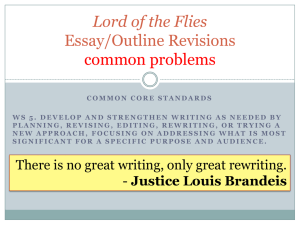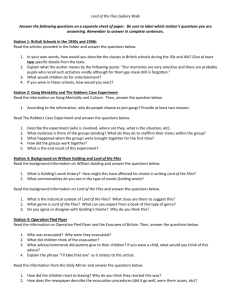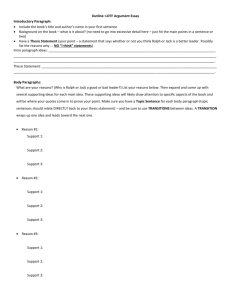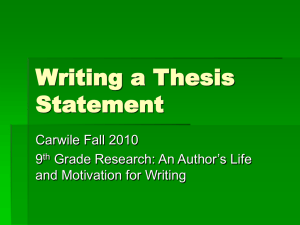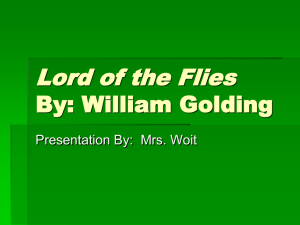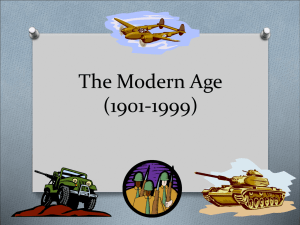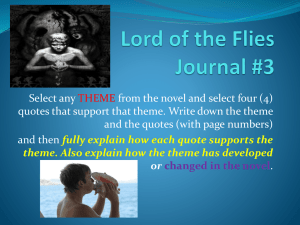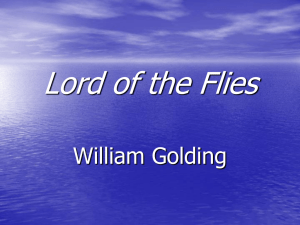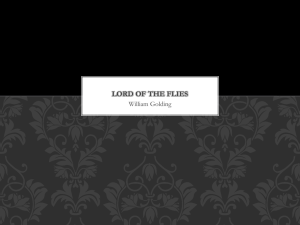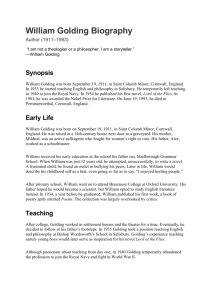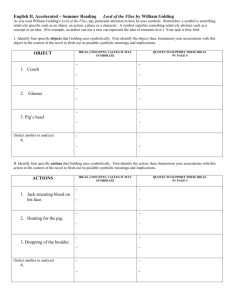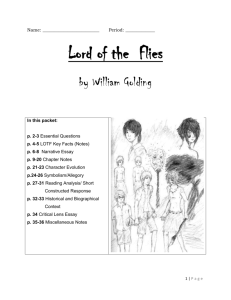6 Easy Steps to a Fantabulous Intro
advertisement
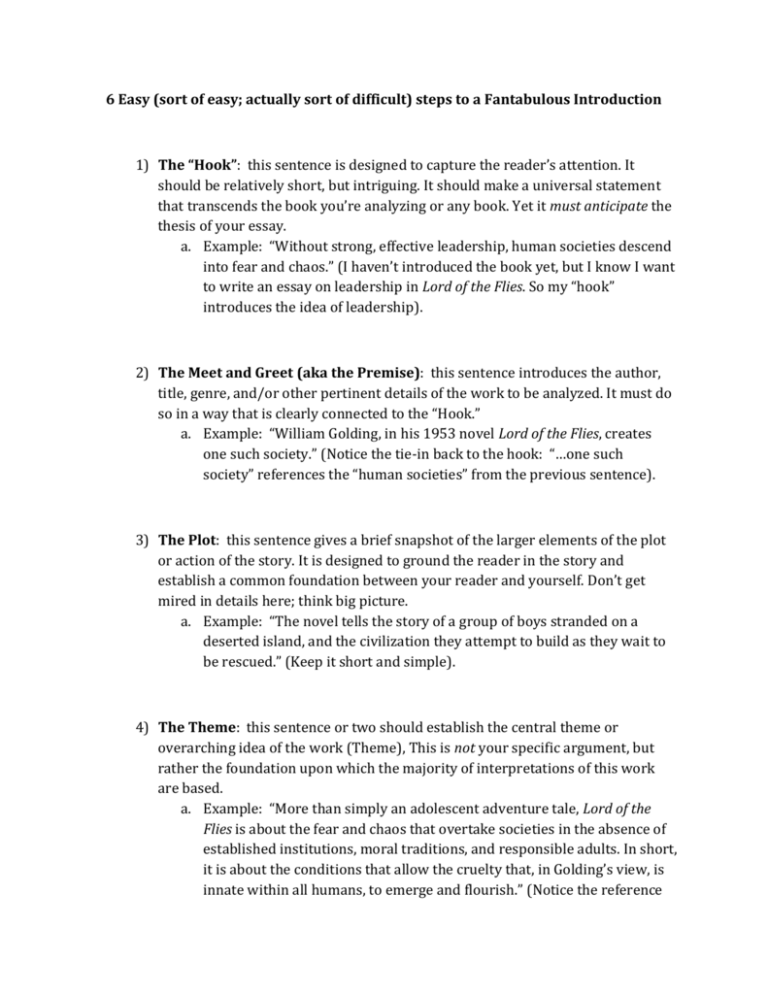
6 Easy (sort of easy; actually sort of difficult) steps to a Fantabulous Introduction 1) The “Hook”: this sentence is designed to capture the reader’s attention. It should be relatively short, but intriguing. It should make a universal statement that transcends the book you’re analyzing or any book. Yet it must anticipate the thesis of your essay. a. Example: “Without strong, effective leadership, human societies descend into fear and chaos.” (I haven’t introduced the book yet, but I know I want to write an essay on leadership in Lord of the Flies. So my “hook” introduces the idea of leadership). 2) The Meet and Greet (aka the Premise): this sentence introduces the author, title, genre, and/or other pertinent details of the work to be analyzed. It must do so in a way that is clearly connected to the “Hook.” a. Example: “William Golding, in his 1953 novel Lord of the Flies, creates one such society.” (Notice the tie-in back to the hook: “…one such society” references the “human societies” from the previous sentence). 3) The Plot: this sentence gives a brief snapshot of the larger elements of the plot or action of the story. It is designed to ground the reader in the story and establish a common foundation between your reader and yourself. Don’t get mired in details here; think big picture. a. Example: “The novel tells the story of a group of boys stranded on a deserted island, and the civilization they attempt to build as they wait to be rescued.” (Keep it short and simple). 4) The Theme: this sentence or two should establish the central theme or overarching idea of the work (Theme), This is not your specific argument, but rather the foundation upon which the majority of interpretations of this work are based. a. Example: “More than simply an adolescent adventure tale, Lord of the Flies is about the fear and chaos that overtake societies in the absence of established institutions, moral traditions, and responsible adults. In short, it is about the conditions that allow the cruelty that, in Golding’s view, is innate within all humans, to emerge and flourish.” (Notice the reference to my previous sentence: “more than simply an adolescent adventure tale.” Always try to create these smooth transitions from one sentence to the next.) 5) The Subject or Lens: This portion of the introduction is the lens through which you will analyze the central theme or themes you identified earlier in the paragraph. In this case, the lens is Leadership. In other cases, it might be the author’s use of literary devices such as characterization, motifs, or imagery. It is by analyzing what Golding writes about leadership that you will shed light on the central theme: “the conditions that allow humans’ innate cruelty to emerge and flourish.” a. Example: “For Golding, strong leadership is the key to building a civilized society and keeping this dark nature in check. Each of his main characters possesses certain traits or skills that make them contenders for leadership of the colony.” (Notice the transition – “this dark nature” – that connects this sentence to the previous one). 6) The Thesis: Now you’ve finally come to the specific argument you want to make about the Subject or Lens of your essay. Here you want to not only lay out your argument, but also anticipate the examples you will use in your body paragraphs to prove your thesis. In other words, provide your reader with a kind of road map with which to navigate the rest of your essay. a. Example: “However, given the conditions on the island, Jack is in fact best suited to lead because of his tenacity, the fact that he already has a loyal group of followers, and his ability to exploit the fear that all of the boys feel inside.” (Notice how you can anticipate what the topic of each of my three body paragraphs will be by reading my thesis statement. Notice also how I have connected my thesis statement all the way back to my opening “hook” through the concepts of “leadership” and “fear”). Put it all together and you get the following: “Without strong, effective leadership, human societies descend into fear and chaos. William Golding, in his 1953 novel Lord of the Flies, creates one such society. The novel tells the story of a group of boys stranded on a deserted island, and the civilization they attempt to build as they wait to be rescued. More than simply an adolescent adventure tale, Lord of the Flies is about the fear and chaos that overtake societies in the absence of established institutions, moral traditions, and responsible adults. In short, it is about the conditions that allow the cruelty that, in Golding’s view, is innate within all humans, to emerge and flourish. For Golding, strong leadership is the key to building a civilized society and keeping this dark nature in check. Each of his main characters possesses certain traits or skills that make them contenders for leadership of the colony. However, given the conditions on the island, Jack is in fact best suited to lead because of his tenacity, the fact that he already has a loyal group of followers, and his ability to exploit the fear that all of the boys feel inside.” Here’s how it looks graphically according to the upside-down triangle model. The point of this model is to show how, beginning with your broad hook, your introduction should gradually narrow in its focus until you arrive at your specific thesis statement: The Hook: Without strong, effective leadership, human societies descend into fear and chaos. William Golding, in his 1953 novel Lord of the Flies, creates one such society. The Meet and Greet: William Golding, in his 1953 novel Lord of the Flies, creates one such society. The Plot: The novel tells the story of a group of boys stranded on a deserted island, and the civilization they attempt to build as they wait to be rescued. The Theme: More than simply an adolescent adventure tale, Lord of the Flies is about the fear and chaos that overtake societies in the absence of established institutions, moral traditions, and responsible adults. In short, it is about the conditions that allow the cruelty that, in Golding’s view, is innate within all humans, to emerge and flourish. The Subject/Lens: For Golding, strong leadership is the key to building a civilized society and keeping this dark nature in check. Each of his main characters possesses certain traits or skills that make them contenders for leadership of the colony. The Thesis: However, given the conditions on the island, Jack is in fact best suited to lead because of his tenacity, the fact that he already has a loyal group of followers, and his ability to exploit the fear that all of the boys feel inside.”
